
The Bee Gees were a musical group formed in 1958 by brothers Barry, Robin, and Maurice Gibb. The trio were especially successful in popular music in the late 1960s and early 1970s, and later as prominent performers in the disco music era in the mid-to-late 1970s. The group sang recognisable three-part tight harmonies: Robin's clear vibrato lead vocals were a hallmark of their earlier hits, while Barry's R&B falsetto became their signature sound during the mid-to-late 1970s and 1980s. The group wrote all their own original material, as well as writing and producing several major hits for other artists, and are regarded as one of the most important and influential acts in pop-music history. They have been referred to in the media as The Disco Kings, Britain's First Family of Harmony, and The Kings of Dance Music.

Robin Hugh Gibb was a British singer and songwriter. He gained worldwide fame as a member of the Bee Gees with elder brother Barry and twin brother Maurice. Robin Gibb also had his own successful solo career. Their youngest brother Andy was also a singer.

Maurice Ernest Gibb was a British musician and songwriter. He achieved worldwide fame as a member of the pop group Bee Gees. Although his elder brother Barry Gibb and twin brother Robin Gibb were the group's main lead singers, most of their albums included at least one or two songs featuring Maurice's lead vocals, including "Lay It on Me", "Country Woman" and "On Time". The Bee Gees are one of the most successful pop-rock groups of all time.

Sir Barry Alan Crompton Gibb is a British musician, singer, songwriter and record producer. Along with his younger twin brothers, Robin and Maurice, he rose to worldwide fame as a member of the Bee Gees, one of the most commercially successful groups in the history of popular music. Gibb is well known for his wide vocal range including a far-reaching high-pitched falsetto. Gibb's career has spanned over 60 years.

Cucumber Castle is the seventh studio album by the Bee Gees, released in April 1970. It was produced by Barry Gibb, Maurice Gibb, and Robert Stigwood. It consists of songs from their television special of the same name, which was named after a song on their 1967 album Bee Gees' 1st. Cucumber Castle is the only Bee Gees album not to feature any recorded contributions from Robin Gibb, as he had left the group before the album was recorded.

Yvonne Marianne Elliman is an American singer, songwriter, and actress who performed for four years in the first cast of the stage musical Jesus Christ Superstar. She scored a number of hits in the 1970s and achieved a US No. 1 hit with "If I Can't Have You". The song also reached No. 9 on the Adult Contemporary chart and number 4 on the UK Singles Chart. Her cover of Barbara Lewis's "Hello Stranger" went to No. 1 on the Adult Contemporary chart, and "Love Me" was No. 5; at the time she had 3 top 10 singles. After a long hiatus in the 1980s and 1990s, during which time she left music to be with her family, she made a comeback album as a singer-songwriter in 2004.
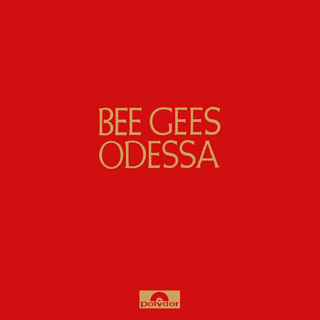
Odessa is the sixth studio album by the Bee Gees, a double vinyl LP released in February 1969, initially in an opulent red flocked cover with gold lettering. Despite reaching the UK Top Ten and the US Top 20, the album was not particularly well-received, though now is regarded by many as the most significant of the group's Sixties albums. An ambitious project, originally intended as a concept album on the loss of a fictional ship in 1899, it created tension and disagreements in the band regarding the work's direction; finally, a dispute over which song to release as a single led to Robin Gibb temporarily leaving the group.

Vincent Melouney is an Australian musician. He is best known as an official member of the Bee Gees from 1967 to 1969 during the group's initial period of worldwide success.
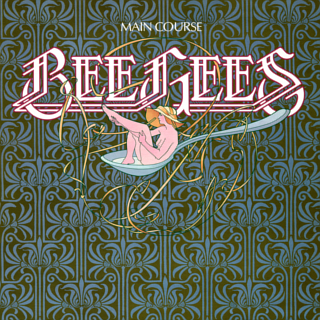
Main Course is the thirteenth studio album by the Bee Gees, released in 1975 by RSO Records. It was the group's last album to be released by Atlantic Records in the US under its distribution deal with Robert Stigwood. This album marked a great change for the Bee Gees as it was their first album to include mostly R&B, soul and funk-influenced songs, and created the model for their output through the rest of the 1970s. It rejuvenated the group's career and public image, particularly in the US, after the commercial disappointment of their preceding albums. Main Course was the first album to feature keyboardist Blue Weaver who had just left the Strawbs and toured with Mott the Hoople. The album cover with the band's new logo designed by US artist Drew Struzan made its first appearance here.
Jonathan Kelly was an Irish folk rock singer-songwriter, who enjoyed a varied career in music, playing with many musicians and groups, including Eric Clapton and Tim Staffell. He formed Jonathan Kelly's Outside in 1973.
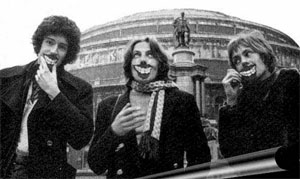
Smile were an English rock band formed in London in 1968 and was the predecessor of the band Queen. The band was formed by Tim Staffell and Brian May, who later went on to form Queen. They were later joined by drummer Roger Taylor, who also went on to form Queen. They recorded six songs and disbanded in 1970. These songs were titled "April Lady", "Step on Me", "Polar Bear", "Earth", "Blag", and "Doin' Alright". These songs exist on the CD Ghost of a Smile. "April Lady" was dedicated to Roger Taylor's girlfriend at the time.
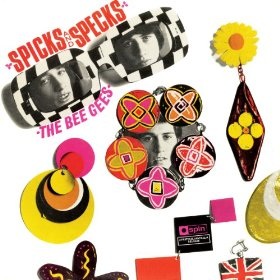
Spicks and Specks is the second studio album by the Bee Gees. It was released in November 1966, on Spin. Primarily written by Barry Gibb, the album includes the first Robin Gibb composition "I Don't Know Why I Bother With Myself" and a Maurice Gibb composition "Where Are You".
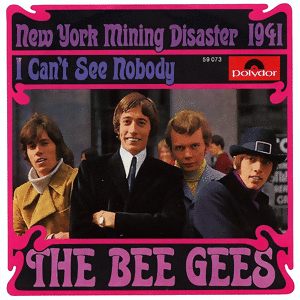
"New York Mining Disaster 1941" is the debut American single by the Bee Gees, released on 14 April 1967. It was written by Barry and Robin Gibb. Aside from a moderately successful reissue of their Australian single "Spicks and Specks," it was the first single release of the group's international career and their first song to hit the charts in both the UK and the US. It was produced by Ossie Byrne with their manager Robert Stigwood as executive producer. The song was the first track of side two on the group's international debut album, Bee Gees' 1st. This was the first single with Australian drummer Colin Petersen as an official member of the band.
George Terry is an American rock and blues guitarist and songwriter best known for his work with Eric Clapton in the 1970s and as a session musician with other artists, including ABBA, the Bee Gees, Joe Cocker, Andy Gibb, Freddie King, Diana Ross, Stephen Stills, and Kenny Rogers.

Frederick Colin Petersen was an Australian drummer, record producer and child actor. He played as a member of the bands Steve and the Board, the Bee Gees and Humpy Bong. In August 1969, he left the Bee Gees and he was replaced by Pentangle drummer Terry Cox to record the songs for their 1970 album Cucumber Castle. His scenes from the film of the same name were cut, and he is not credited on the accompanying album soundtrack, even though he does play on some songs.
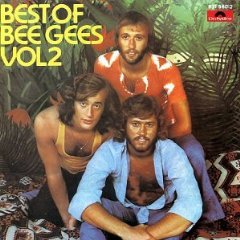
Best of Bee Gees Vol. 2 is a compilation album of hits by the Bee Gees released in 1973. The album, briefly revived on CD in the late 1980s, went out of print, but was reissued by Rhino in November 2008.

Bee Gees' 1st is the third studio album by the Bee Gees, and their first international full-length recording after two albums distributed only in Australia and New Zealand. Bee Gees' 1st was the group's debut album for the UK Polydor label, and for the US Atco label. Bee Gees 1st was released on 14 July 1967 in the UK. On 9 August it entered the UK charts; on that same day, the album was released in the US, and it entered the US charts on 26 August.
"I Can't See Nobody" is a song by the Bee Gees, released first as the B-side of "New York Mining Disaster 1941". With "New York Mining Disaster 1941", this song was issued as a double A in Germany and Japan, and included on the group's third LP, Bee Gees' 1st. "I Can't See Nobody" charted for one week at number 128 on the Billboard Bubbling Under the Hot 100 in July 1967.

"Every Christian Lion Hearted Man Will Show You" is a song written by Barry, Robin & Maurice Gibb released by the Bee Gees in 1967 on their album Bee Gees' 1st. It was released as the B-side to "Holiday" in the US, Australia and Canada.

"Cherry Red" is a song by the Bee Gees, written by Barry Gibb, released as the B-side of "I Want Home" in March 1966, and has become one of the famous Bee Gees songs in the Philippines and Brazil. The song's opening chord was E followed by Barry singing Where are you?.
















